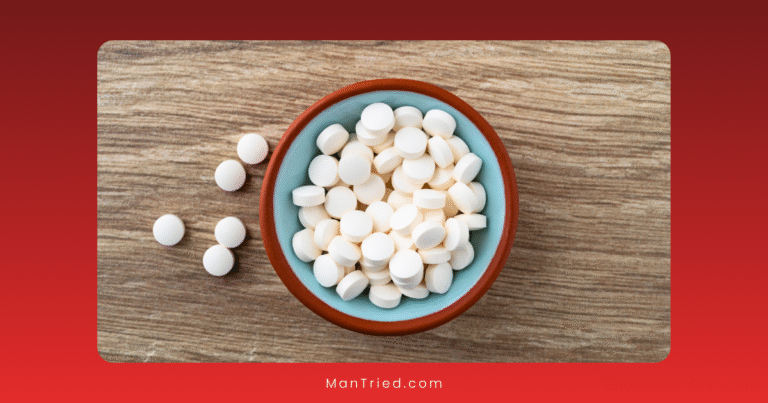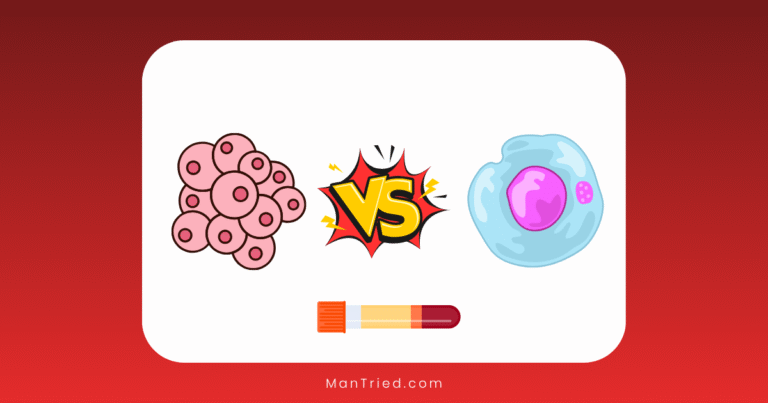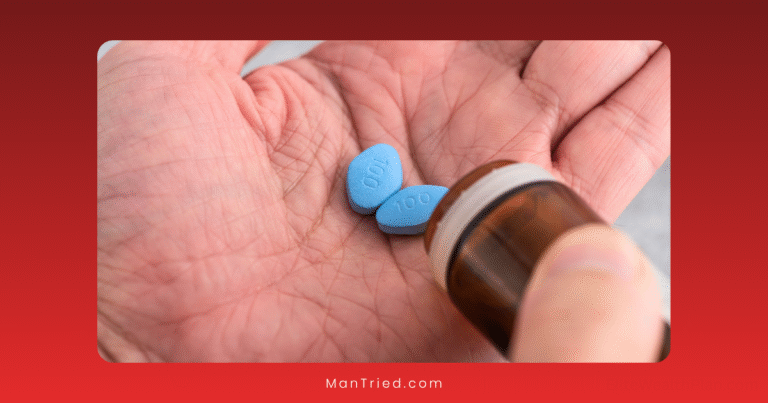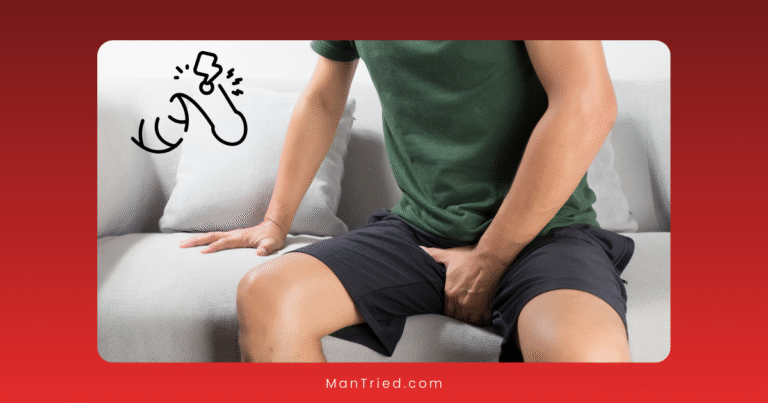From Hesitation to Success: Real Men’s Experiences with Injection Therapy

For many men facing erectile dysfunction (ED), the journey to finding an effective treatment can be fraught with disappointment, embarrassment, and frustration. While oral medications like Viagra and Cialis work for many, a significant percentage of men—especially those with diabetes, cardiovascular issues, or post-surgical complications—find these first-line treatments inadequate.
When oral medications fail, injection therapy often emerges as the next option. Yet the very thought of administering a needle to such a sensitive area causes many men to hesitate or refuse treatment altogether. Despite this initial reluctance, injection therapy boasts success rates of 70-90%, even in cases resistant to oral medications.
This article shares the authentic experiences of men who overcame their initial hesitation to find success with injection therapy. Their stories reveal not just the challenges they faced, but the life-changing benefits they ultimately discovered.
The Initial Hesitation: Facing the Needle
The prospect of self-injection is perhaps the most significant psychological barrier men face when considering this therapy.
Robert’s Story: “I Couldn’t Even Watch”
Robert, 58, a marketing executive who developed ED following treatment for prostate cancer, recalls his first encounter with the idea of injection therapy:
“When my urologist first mentioned injections, I literally felt lightheaded. I’ve never been good with needles—I can’t even watch when I get a flu shot. The thought of injecting my penis seemed absolutely impossible. I told him I’d rather just live without sex than do that.”
Robert’s reaction is common. According to a survey published in the Journal of Sexual Medicine, approximately 38% of men initially refuse injection therapy when it’s first suggested, primarily due to needle anxiety.
Michael’s Concern: “Will It Hurt?”
Michael, 64, who developed ED related to long-standing diabetes, shared:
“My main concern wasn’t just the needle itself, but the pain. I kept thinking, ‘This has to be excruciating.’ I imagined this sharp, intense pain in the most sensitive part of my body. Even though my doctor assured me most men tolerate it well, I couldn’t get past that mental image.”
Dr. Sarah Johnson, sexual medicine specialist at Mayo Clinic, explains: “The fear of pain is often much worse than the reality. The penis has fewer pain receptors than many people assume, and with proper technique, most men report only mild discomfort—often less than a typical vaccination.”
James’s Embarrassment: “I Couldn’t Tell Anyone”
For James, 52, a high school teacher who developed ED after heart surgery, the psychological barrier was more about embarrassment:
“There was something so embarrassing about the whole thing. I couldn’t imagine telling my wife I needed to inject myself just to have sex. And the thought of having to excuse myself to go do this before intimacy seemed so clinical and awkward. It felt like admitting total defeat as a man.”
This sense of embarrassment is a common theme. Research from the American Journal of Men’s Health indicates that concerns about partner reaction and the potential disruption to spontaneity are among the top reasons men initially resist injection therapy.
The Decision Point: What Changes Minds
Despite initial resistance, many men eventually decide to try injection therapy. Their reasons for taking this step reveal important insights about overcoming psychological barriers.
David’s Turning Point: “I Had Nothing Left to Lose”
David, 61, a retired police officer with ED related to hypertension, describes his decision:
“After three different oral medications failed me, I hit rock bottom emotionally. My marriage was suffering, and I was becoming depressed. When you reach that point, you realize you have nothing left to lose. My doctor said, ‘Just try it once in the office, and if it’s too much, we’ll look at other options.’ That approach made it seem less final, so I agreed.”
Thomas’s Motivation: “My Marriage Deserved Better”
Thomas, 57, who developed ED following a bicycle accident that caused vascular damage, found motivation in his relationship:
“My wife and I had always had a great intimate life, and seeing her pretend it didn’t matter was heartbreaking. She deserved better, and our marriage deserved better. That became more important than my fear of needles. Sometimes love pushes you past your comfort zone.”
According to Dr. James Wilson, urologist at Men’s Health Boston, “Relationship factors are often the most powerful motivators. When men see how ED affects their partners and relationships, many find the courage to overcome their initial hesitation about injections.”
Richard’s Research: “The Success Rates Convinced Me”
For Richard, 68, a retired engineer with ED related to Peyronie’s disease, the decision came after thorough research:
“I’m a numbers guy, so I researched everything. When I saw that injection therapy has success rates of 80-90% even for difficult cases like mine, compared to about 40-50% for the oral medications that weren’t working for me, the decision became logical rather than emotional. I decided to trust the data.”
The First Experience: Expectations vs. Reality
The gap between what men expect and what they actually experience during their first injection is often substantial.
Robert: “Much Easier Than I Imagined”
Robert, who initially couldn’t even contemplate the idea, shares his first experience:
“My urologist had me come in for an office demonstration and first injection. I was sweating bullets. But when he did it, I felt just a tiny pinch—less than when I prick my finger to check my blood sugar. I remember saying, ‘That’s it? That’s what I was terrified of?’ I felt foolish for having built it up so much in my mind.”
Michael: “I Didn’t Even Feel the Needle”
Michael recalls his surprise at the minimal discomfort:
“The nurse applied a numbing cream first, and I honestly didn’t even feel the needle go in. There was a slight burning sensation as the medication went in, but it lasted maybe 5 seconds. What I wasn’t prepared for was how effective it was—I had an erection within minutes that was firmer than anything I’d experienced in years.”
According to a study published in Sexual Medicine Reviews, approximately 70% of men report that their first injection experience was “much less painful” or “less painful” than they had anticipated.
James: “My Wife’s Reaction Changed Everything”
For James, who worried about his wife’s response, the reality was unexpected:
“I finally worked up the courage to tell my wife about the treatment. Instead of being put off, she was incredibly supportive. She even offered to help with the injections if I wanted. Her reaction completely changed my perspective. When we were intimate that first time after the injection, seeing her satisfaction and the reconnection we felt made any momentary discomfort completely worthwhile.”
The Learning Curve: Mastering Self-Injection
While the first injection is often done under medical supervision, learning to self-administer at home presents another set of challenges.
David: “Practice Makes Perfect”
David describes his learning process:
“The first time I tried it at home, my hands were shaking so badly I had to put everything down and walk around the room to calm myself. It took me three attempts to finally do it. But by the third or fourth time at home, it became almost routine—like diabetics say about checking their blood sugar. Now I can do it in under a minute without thinking twice.”
Thomas: “Finding My Technique”
Thomas found that developing a personal technique helped:
“I discovered that I do better if I sit down rather than stand, and if I use my non-dominant hand to hold myself while injecting with my dominant hand. Everyone’s different, and finding what works for you is key. I also found that using a small ice pack for 30 seconds before the injection made it nearly painless.”
Dr. Lisa Martinez, sexual medicine specialist at Cleveland Clinic, advises: “We encourage patients to develop their own ritual around the injection process. Some men prefer complete privacy, others involve their partners, and some find that specific techniques like ice, distraction, or certain positions make the process easier.”
Richard: “Technology Helped Me”
Richard’s engineering background led him to seek technological assistance:
“I found that using a magnifying mirror and good lighting made a huge difference. I also use a small vibrating massager on my thigh during the injection—the vibration seems to confuse the nerve signals and reduces any sensation from the needle. These little adaptations made the process much easier for me.”
The Impact: Beyond Physical Function
Perhaps the most compelling aspect of these testimonials is how injection therapy affected men’s lives beyond just restoring erectile function.
Robert: “I Got My Confidence Back”
Robert reflects on the broader impact:
“It wasn’t just about having sex again. I got my confidence back in all areas of life. I stopped avoiding social situations with my wife because I was afraid she might want intimacy afterward. I started exercising again and taking better care of myself overall. It was like a cloud lifted that I hadn’t even realized was there.”
Michael: “Our Relationship Transformed”
Michael noticed changes in his relationship:
“My wife and I communicate better now, not just about sex but everything. There’s a level of honesty between us that wasn’t there when I was avoiding the topic or pretending ED wasn’t affecting me. We’re more affectionate throughout the day, not just during sex. It’s like we’re dating again after 40 years of marriage.”
Research from the International Journal of Impotence Research confirms these experiences, indicating that successful ED treatment often leads to improvements in overall quality of life, relationship satisfaction, and mental health metrics.
James: “I Stopped Defining Myself by ED”
James experienced a shift in identity:
“Before injection therapy, I had started to define myself as ‘a guy with ED.’ It colored everything in my life. Now, ED is just a minor medical issue I manage, like my high blood pressure. It doesn’t define me anymore. That psychological shift has been as important as the physical benefits.”
Partner Perspectives: The Other Side of the Story
The impact of injection therapy isn’t limited to the men who use it. Partners often experience significant changes as well.
Carol, Robert’s Wife: “I Got My Husband Back”
Carol shares her perspective:
“It wasn’t just about sex for me. Before Robert started the injections, he had withdrawn emotionally. He stopped holding my hand, kissing me, even sitting close on the couch—I think because he was afraid it would lead to sex and then disappointment. After he started treatment, all that affection came back. I got my husband back, not just a sexual partner.”
Linda, Michael’s Wife: “The Honesty Changed Everything”
Linda reflects on the communication changes:
“For years, we had this unspoken issue between us. Michael would avoid intimacy, and I would pretend not to notice because I didn’t want to hurt his pride. When he finally opened up about the ED and his treatment, it was like a dam broke. We started being honest about everything, not just our sex life. That honesty has been the biggest change for me.”
According to Dr. Jennifer Martinez, sex therapist at Relationship and Sexual Health Institute, “Partners often report that the restoration of honesty and vulnerability in the relationship is as meaningful as the return of sexual function. Many couples use this experience as a catalyst to improve communication in all areas.”
Practical Advice: Tips from Experienced Users
Men who have successfully incorporated injection therapy into their lives offer practical advice for newcomers.
Robert: “Create a System”
“I created a system that works for me. I keep all my supplies in a small travel kit in my bedside drawer. I have a checklist I follow each time to make sure I don’t miss any steps. Having a system reduces anxiety and makes it feel more routine.”
Michael: “Timing Is Everything”
“I’ve learned that timing matters. I do best when I inject about 15 minutes before intimacy is likely. It gives the medication time to work fully but doesn’t make me feel rushed. My wife and I have developed subtle signals so she knows when I’ve done the injection without having to explicitly say it, which keeps things more natural.”
David: “Don’t Obsess About the Perfect Erection”
“Early on, I was obsessed with getting the ‘perfect’ erection—like I was 20 again. My doctor helped me realize that ‘good enough’ really is good enough. Now I focus more on the connection with my wife rather than analyzing the quality of my erection, and ironically, that’s made the physical response even better.”
Thomas: “Involve Your Partner If Possible”
“The best decision I made was involving my wife in the process. She doesn’t do the injection for me, but she’s in the room and we talk or joke around while I do it. It makes it feel like a shared experience rather than a medical procedure I have to hide.”
Overcoming Common Challenges
Even men who successfully use injection therapy face ongoing challenges. Their strategies for addressing these issues provide valuable insights.
Challenge: Travel and Public Situations
Richard shares his approach:
“I travel frequently for work, and figuring out how to manage the therapy while traveling was initially stressful. I got a small medical travel case with an ice pack, and I carry a letter from my doctor explaining the medication and needles if I’m questioned at security. I’ve never had an issue, and knowing I have a system in place reduces anxiety.”
Challenge: Maintaining Spontaneity
James addresses the concern about spontaneity:
“My wife and I schedule ‘date nights’ when we know intimacy is likely. This actually adds anticipation rather than reducing spontaneity. On other occasions, I’ve found that a brief ‘I’ll be right back’ is all that’s needed—it’s less disruptive than I feared. Sometimes she uses that time to prepare herself as well.”
Challenge: Ongoing Motivation
Michael discusses maintaining motivation:
“There are still times I think, ‘Do I really want to do this injection tonight?’ What keeps me motivated is remembering how our relationship suffered before. I keep a journal where I’ve written down how I felt when ED was untreated, and occasionally reading those entries reminds me why the small inconvenience is worthwhile.”
The Long-Term Perspective: Years Later
For men who have used injection therapy for extended periods, the long-term perspective offers additional insights.
Robert: Five Years Later
“After five years, it’s just part of my routine—like brushing my teeth or taking my blood pressure medication. The benefits so outweigh the minor inconvenience that I rarely think about it anymore. My only regret is not starting sooner and wasting years of intimacy with my wife.”
Richard: Seven Years Later
“Over seven years, I’ve had to adjust my dosage a couple of times as my body changed, but the therapy continues to be effective. I’ve had no complications, and at my age—75 now—I’m grateful to still have this part of my life when many of my peers don’t.”
Conclusion: Lessons from the Journey
The experiences of these men offer several important lessons for others considering injection therapy:
- The anticipation is often worse than the reality. Nearly all men report that their fears about pain and difficulty were overblown.
- The benefits extend beyond sexual function. Improved relationships, confidence, and overall quality of life are common outcomes.
- Developing a personal system and technique improves success. Each man must find the approach that works best for him.
- Partner involvement can transform the experience. When viewed as a shared aspect of the relationship rather than a medical procedure, the psychological burden is often reduced.
- The learning curve is short for most men. What seems daunting at first typically becomes routine within a few weeks.
For men currently hesitating about injection therapy, perhaps the most powerful message comes from David:
“If you’re where I was—afraid of the needle and wondering if it’s worth it—I’d say this: The momentary discomfort of an injection is nothing compared to the ongoing pain of losing intimacy






